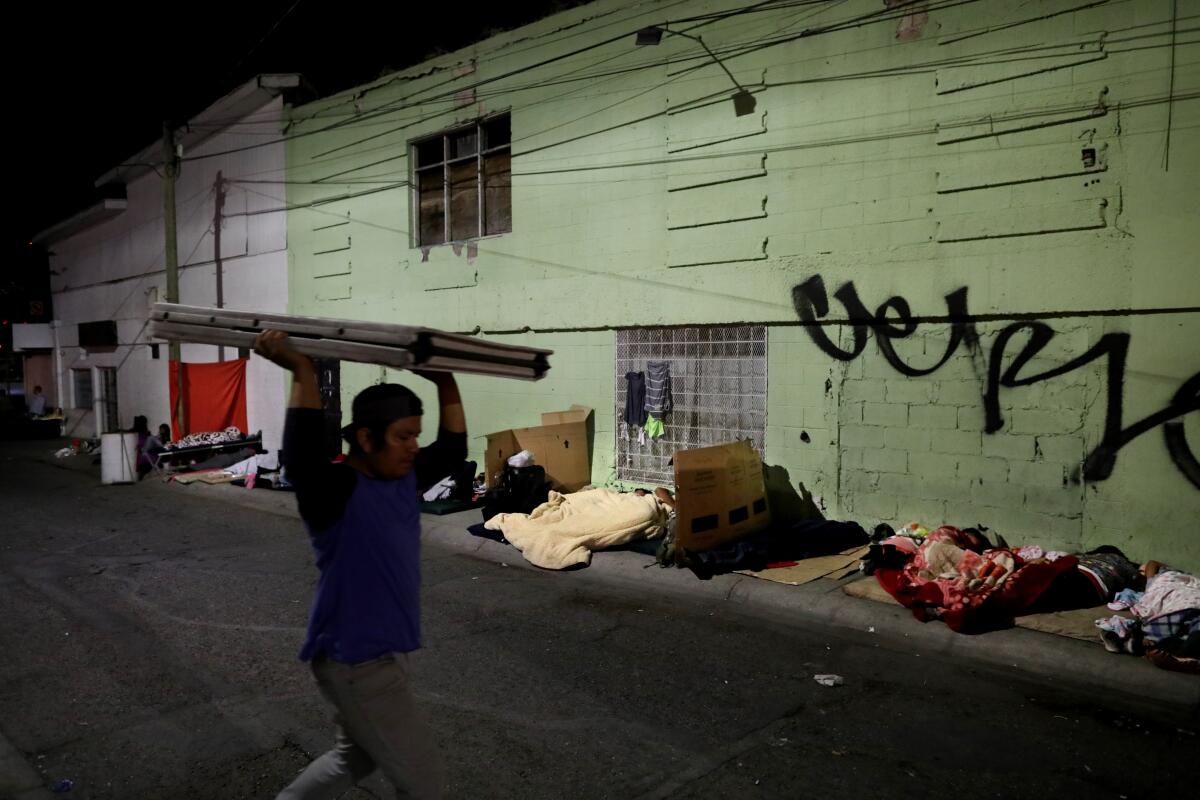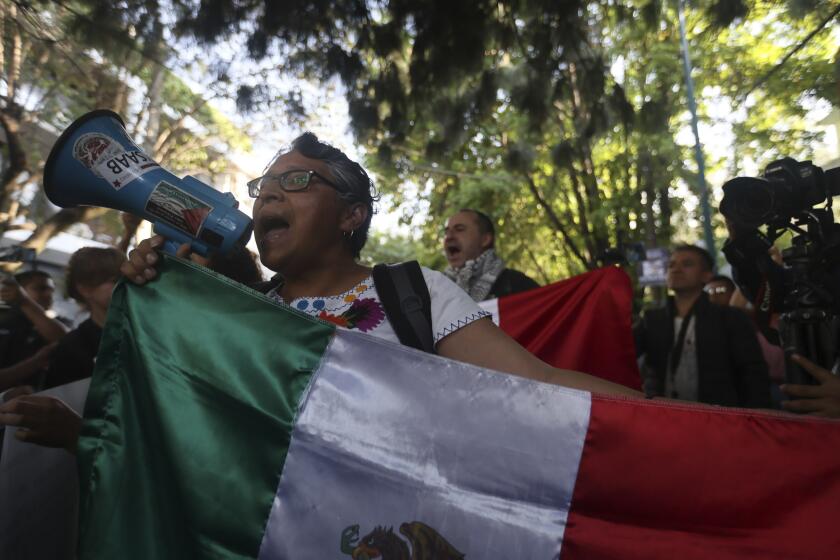U.S. appeals court questions Trump policy forcing refugee seekers to remain in Mexico

A federal appeals court expressed concerns during a hearing Tuesday about a Trump administration policy that requires Central American migrants to remain in Mexico while their asylum requests are processed.
A federal judge issued a nationwide injunction against the policy in April, but a three-judge panel of the U.S. 9th Circuit Court of Appeals decided the following month to put a hold on the order.
Since then, according to a report by The Times, more than 37,000 migrants have been ordered to remain in Mexico, in cities that the U.S. State Department considers some of the most dangerous in the world. Migrants have been attacked, sexually assaulted and extorted, and some have died while waiting, The Times found.
During Tuesday’s hearing, a different three-judge 9th Circuit panel appeared critical of the policy.
Judge William A. Fletcher, an appointee of President Clinton, noted that the new rule does not require asylum officers to ask migrants “a key question” before requiring them to wait in Mexico.
“You don’t even ask if they have any kind of fear” about remaining in Mexico, Fletcher told a lawyer for the federal government.
Richard A. Paez, also a Clinton appointee, suggested the panel might have to allow the injunction to take effect to ensure that refugees without lawyers are asked whether they fear staying in Mexico.
The 1951 U.N. Convention Relating to the Status of Refugees says the government may not return a refugee to a place where his or her life or freedom would be threatened.
Deputy Assistant Atty. Gen. Scott G. Stewart, arguing for the Trump administration, told the panel that nothing prevents refugees from voluntarily telling an asylum officer of specific concerns about remaining in Mexico.
But ACLU lawyer Judy Rabinovitz countered that migrants, many who do not speak English and aren’t entitled to use interpreters, may not understand the importance of volunteering such information. She told the court that refugees are not allowed to consult with a lawyer, even if they have one.
The 9th Circuit’s May 7 order granting the Trump administration’s request to place a hold on the injunction was hardly an endorsement of the policy. It was granted by a motions panel that hears urgent matters and whose members change month to month.
Judge Paul J. Watford, an appointee of President Obama on that panel, agreed to stay the injunction but wrote separately to say that at least some migrants were being returned to Mexico in violation of the 1951 Convention.
“Some belong to protected groups that face persecution both in their home countries and in Mexico, and many will be vulnerable to persecution in Mexico because they are Central American migrants,” Watford wrote.
Fletcher, who also was on that month’s motions panel, agreed with the decision against the nationwide injunction, but wrote separately to say the policy violated a 1996 immigration law.
During Tuesday’s hearing, Fletcher suggested that the decision blocking the injunction does not mean that the 9th Circuit cannot revive it after further consideration.
“We heard argument one week after the [Trump administration] motion was filed,” Fletcher said. “That is not a lot of time.”
The panel also heard arguments on a Trump rule that denies asylum to people who cross the border at a place other than an official point of entry.
A federal judge in San Francisco issued an order blocking the rule, and the Supreme Court decided 5-4 last December to leave that order in place. Trump acted after caravans of thousands of migrants headed from Central America to the U.S. border.
Paez noted that Congress has specified that refugees may apply for asylum even if they enter the country without presenting themselves for inspection.
He asked how an agency could later pass a regulation “that wipes that out.”
Lee Gelernt, another ACLU lawyer, told the panel that “Congress understood how dangerous it was to eliminate asylum for people who couldn’t make it to a point of entry.”
Judge Ferdinand Fernandez, appointed by George H. W. Bush, was the third member of Tuesday’s panel. He did not ask any questions.
The panel may rule at any time. The losing side could ask a larger 9th Circuit panel to reconsider or go directly to the Supreme Court.
More to Read
Start your day right
Sign up for Essential California for news, features and recommendations from the L.A. Times and beyond in your inbox six days a week.
You may occasionally receive promotional content from the Los Angeles Times.







